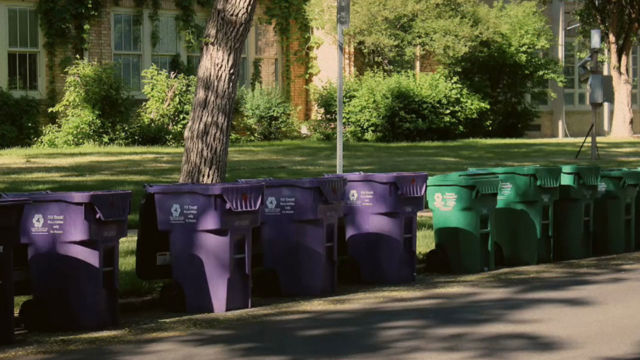The U.S. state of Colorado is also stepping up its environmental efforts. It is working on increasing recycling. The measure comes after China stopped importing foreign waste.
CGTN’s Hendrik Sybrandy reports.
Recycling would seem like a common practice in an outdoor-oriented, environmentally conscious U.S. state like Colorado.
“But we’re way behind our national average on recycling rates because we just don’t have the same infrastructure around recycling, for drop-offs or for curbside,” Jared Polis, U.S. Congressman from Colorado said.
At the state’s annual Recycling Summit, talk centered on getting more people to recycle but also on one major importer of recyclables which prompted a prominent mention on the cover of the summit program: “Who needs China’s markets? Creating solutions in Colorado.”
“You know it’s definitely been tough on processors across the country,” said Brent Hildebrand, Alpine Recycling Vice President. “You know we look at it as we have to adapt.”
Hildebrand was referring to China’s National Sword policy, which severely restricts the type of waste the country will accept.
China is worried about what the industry terms contamination, such as when non-recyclable and recyclable materials are mixed together or when articles like plastic or brown bags are co-mingled with paper. Items unsuitable for recycling often arrive at Materials Recovery Facilities. Sorting them to a higher standard typically takes more time.
“That did cause us to slow down a little bit and add a little more labor,” Hildebrand said about the period right after the regulations went into effect.
Then in May, he was notified China would temporarily no longer accept any new waste shipments. Since half of Alpine’s material is exported, much of it to China, he suddenly had to find new markets, in places like South Korea and Mexico. U.S. scrap plastic exports to China are also impacted by the regulations. Some in the industry think a new contamination rate of .5 percent will be tough to meet.
“It’s hard enough to get to a percentage rate in a single digit,” said Laurie Johnson, Executive Director of the Colorado Association for Recycling. But she believes tighter quality restrictions will benefit recyclers in the end.
“We really need to take a more detailed look at each material and how we’re handling it so when we get to the end of the stream it’s clean,” Johnson said.
New technology, like robots and optical sorters, will could help better separate materials. China’s new regulations could cause U.S. processors to look for new domestic markets for those commodities.
“It has caused a bit of turmoil but as in most things turmoil is also opportunity,” said Suzanne Jones, Executive Director of Eco-Cycle in Boulder, Colorado, one of the largest nonprofit recyclers in the U.S.
The recycling business is a global industry, one that’s being reshaped by China’s anti-pollution campaign.
“I applaud what they’re trying to do,” Hildebrand said. “They’re trying to clean up some of the trash that’s being sent to their country.” It’s forcing operators of U.S. waste facilities to adjust, and giving Colorado an extra nudge to get its recycling house in order.
 CGTN America
CGTN America
 These are challenging times for companies around the world that process recyclables. For years, China was a major importer of foreign waste for recycling. But this year, China put severe restrictions into place regarding what it will continue to accept.
These are challenging times for companies around the world that process recyclables. For years, China was a major importer of foreign waste for recycling. But this year, China put severe restrictions into place regarding what it will continue to accept.
